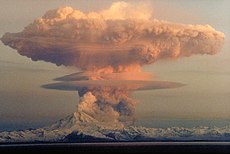Regulators from Korea’s Financial Supervisory Service, which really exists despite a long-held view among many economic commentators that it is actually an urban myth, argued that since Basel III covered standards on banking liquidity and leverage, in addition to capital adequacy, a more encompassing and grander sounding name than Basel should be found. Basel is a small insignificant city in a small insignificant country, whereas Seoul is much bigger city in the most important country in the world, the regulators factually stated.
However, while attendees at the meeting in Seoul agreed that it was a very good idea, it was pointed out that the ‘Seoul Initiative’ is already the name of a ‘green growth’ program run by Korea’s Ministry of Environment, which also really exists and is not an urban myth. Furthermore, ‘Seoul Initiative’ is the name of an underground strip club frequented by perverted foreigners and never any Korean men in Seoul’s Itaewon district. It was felt this might cause additional problems for international bankers, for whom sex and money are often confused. At least one attendee also pointed out in closed sessions that Seoul had its own capital adequacy issues and so the proposed name might be seen as unintentionally ironic, but the Korean Government deny Seoul is an inadequate capital, despite the Sejong City project.
However, several prominent economists said that the failure to brand the new regulations as the ‘Seoul Initiative’ was actually a lucky escape for Seoul and South Korea. The tightened rules are expected to further constrain the ability of banks to lend to businesses and individuals, causing worldwide property crashes, business failures, mass unemployment, sovereign debt defaults, severe austerity programs and war between the U.S. and China, although the latter was scheduled anyway. They said that on reflection, Korean bureaucrats and politicians would probably see that having the name ‘Seoul’ associated with a double-dip recession followed by a catastrophic economic collapse was not the kind of image that Korea’s capital city wanted to promote as part of its tourism drive. Tourism Seoul denied this, saying that “Seoul – the end of the world began here” could be a good way of attracting overseas visitors. possibly in conjunction with an annual End of the World International Festival.
Senior Korean politicians have not been discouraged by the set-back, and are hoping to associate Korean place names with other disasters. It has been suggested that a deadly heatwave might be caused a ‘Daegu’, an industrial accident an ‘Ulsan’, and a worldwide cataclysm necessitating the survival of the rich while the poor are abandoned and left to die – such as the one depicted in the movie ‘2012’, could be called a ‘Gangnam’.
Related Links
'Seoul Initiative' offered for banking supervisory reform


